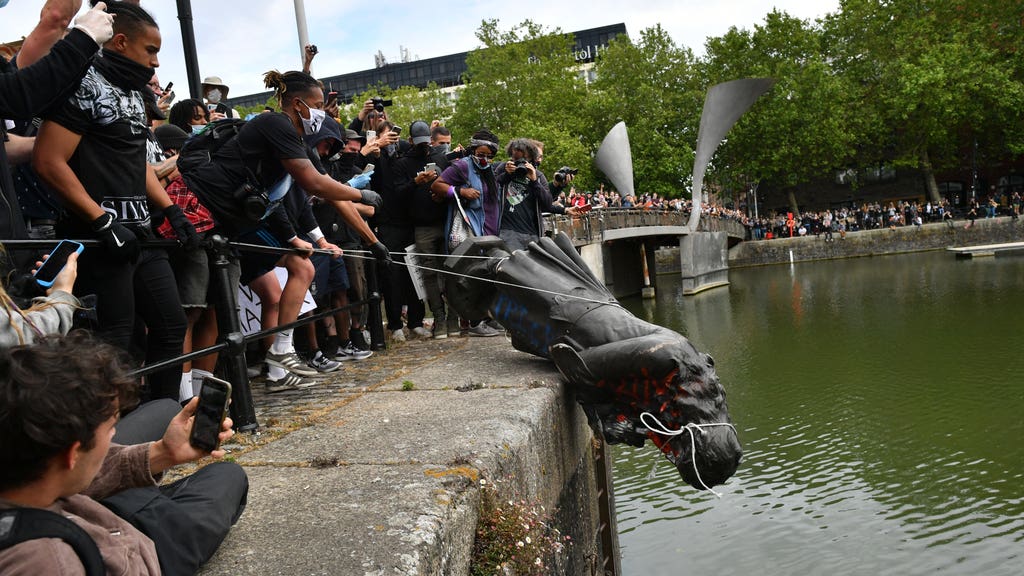Plantation Wharf housing development could be renamed over ‘sickening’ slave trade links
‘This is sickening’ says local MP

Owners of a luxury housing complex in London called Plantation Wharf are consulting over a name change due to its links to the slave trade as critics say its identity has racist undertones.
The development in Battersea includes locations such as ‘Cotton Row’, ‘Trade Tower’ and ‘Molasses Row’ — all of which are synonymous with the brutal enslavement into which tens of thousands of African people were forced into between 1776 and as recently as the 1960s.
The complex was first developed in the 1980s, but questions over the naming of the site and its buildings have been raised in recent days after photographs of signage went viral on social media.
Dr Vanessa Brady, the honorary director of Plantation Wharf Management Limited, told The Independent: “It is our view that this area has positively embraced a cosmopolitan culture and many families who work, relax and reside here in Battersea and Wandsworth will have past family generations connected to the wharf.
“It is important that we don’t forget or ignore their past whilst it is also as important in the world we live in today, to ensure we provide opportunities to address any changes we make - or we stand the potential risk of offending many other Black people if we eradicate their past as if it did not exist.
“We know today that slavery is unacceptable; I cant imagine anyone supporting it. For these reasons we opted to present the history to stakeholders as uncovered by professional researchers and historians for their consideration and vote on the development’s name.”
She added: “As a board we will then act on the majority vote from a position of consultation and inclusion which is our democracy.”
Ms Brady confirmed that the board of directors of the management company, which represent residents, agreed in June 2021 to review the history of the name and propose a change through consultation with all residents.
This would come after providing residents “with the history of the area that caused the original developers in 1988 to choose the names that we have all inherited,” she said.
“We have considered listing the history beside each name and its reference to the area but some residents believe it will simply generate hate and conflict so we opted for a full consultation.”
To that end, a sub-committee to research the history of the site has been set up, Ms Brady said, to “research why the developers chose in 1988 to reference the names associated with international trade and business with far away countries - presumably to positively influence their development.”

Weyman Bennett, joint secretary of anti-racism group Stand Up To Racism, said: “Slavery plantations were scenes of murder and exploitation.
“The plantation symbol should be confirmed as a sign of an Atlantic slave trade which was a criminal act against Black communities.
“The name of this wharf is a continuing sign of how much institutional racism is embedded in the UK and it’s something which we should fight and reject.”
A spokesperson for Sadiq Khan, the Mayor of London, criticised the property’s names and welcomed the board’s decision to review them.
“Changes to public spaces are governed by relevant legal and local planning permission - with local people given the chance to be properly consulted,” they said.
“The names used in this private development carry heavy and problematic connotations and it is right that the owners will be consulting with leaseholders and stakeholders to review them.”
In February, Mr Khan announced the members of his Commission for Diversity in the Public Realm which is responsible driving “greater diversity across the public realm – including statues, street names, building names and memorials”.
The mayor’s spokesperson said the names used in private developments are not something the Commission has the power to influence, adding: “The Commission’s role is to enrich and add to the current public realm and support ways for our statues, street names, building names and memorials to better represent our communities and our stories.
“It has not been established to preside over the removal of statues or change the names of private developments. Those are not decisions for the mayor.”
Meanwhile, Wandsworth Council has attempted to distance itself from the furore.
A spokesperson said: “This is a private development in which the buildings were named by the developer 26 years ago in 1995. We understand that its current management team has been approached on this issue and has expressed a willingness to look again at the names of these buildings."
Local MP Marsha de Cordova, who wrote to Wandsworth about Plantation Wharf in June 2020 but didn’t receive a reply, said: “This is sickening and it makes a mockery of the history of the brutal transatlantic slave trade.
“Last year I called on Wandsworth Council to review the appropriateness and relevance of current monuments, statues, streets and building names to ensure they are compatible with our anti-racism values. It needs to be change”.
Join our commenting forum
Join thought-provoking conversations, follow other Independent readers and see their replies
Comments
Bookmark popover
Removed from bookmarks